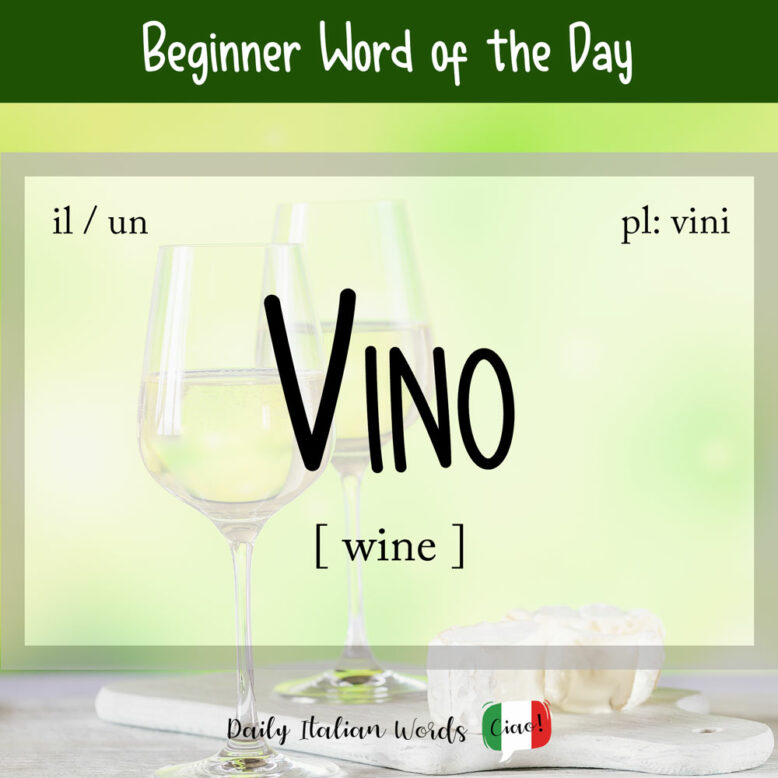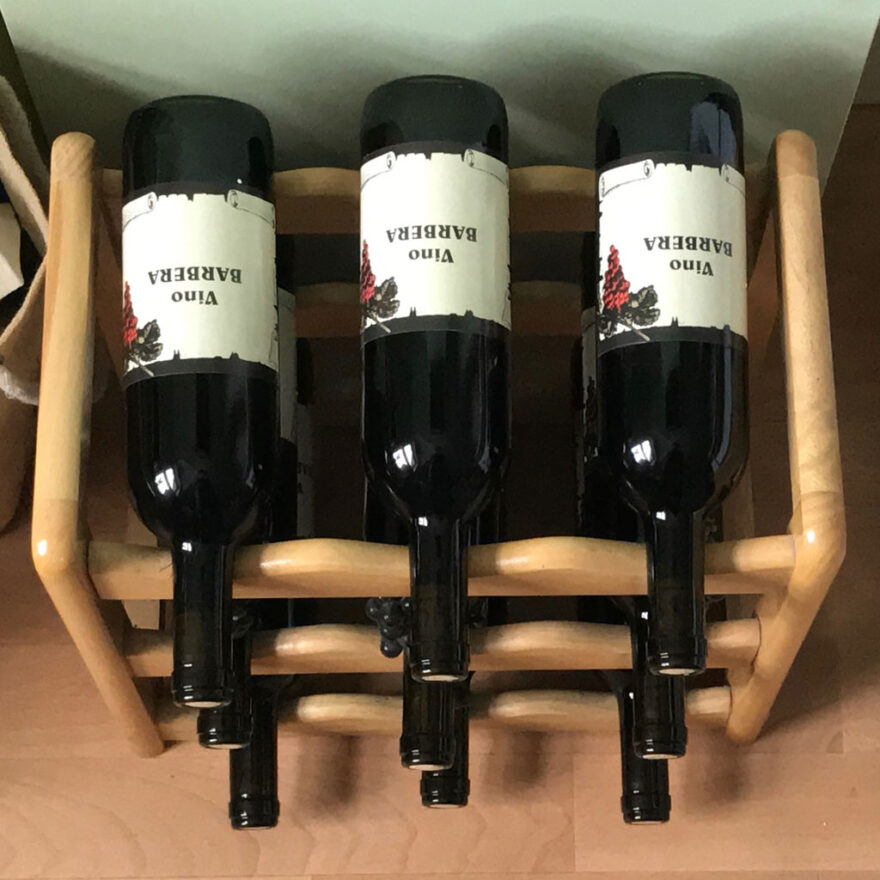Like food, wine plays a very important role in Italy’s commerce and culture. Mangiare (eating) together is a fundamental part of Italian social life, and whether you’re at a restaurant or someone’s house, a bottiglia (bottle) of wine is always on the table.
The word for wine in Italian is vino (masculine, plural vini).

As you can imagine, there are lots of different types of wine. Here are some common names:
- vino rosso = red wine
- vino bianco = white wine
- vino cotto = dense and sweet wine, also used for cooking
- vino drogato / aromatizzato = seasoned wine
- vino giovane = young wine
- vino vecchio = old wine
- vino passito = straw / raisin wine
Di vino cosa vogliamo ordinare? – Beh, con la carne bisogna bere il vino rosso!
Which wine do we want to order? – Well, we need to drink red wine with meat!
The term vino is also used for alcoholic drinks extracted from fermented fruit other than grapes, and also special plants:
- vino di mele = wine of apples (cider, also sidro in Italian)
- vino di palma = palm wine
- vino di riso = rice wine (sake)
If you pour some water into your glass of wine to make it less strong, your friends will tease you by saying that you’ve “baptised the wine“:
Guarda Carlo, sta battezzando il vino!
Look at Carlo, he’s watering down the wine!
In certain cases, the o of vino is dropped with adjectives that begin with a consonant:
- vin dolce = sweet wine
- vin greco = Greek wine
- vin santo = holy wine
- vin brulé = hot wine (you can also say vino caldo)
Vino can become an adjective to describe the colour of red wine.
Margherita indossa un bellissimo vestito rosso vino.
Margherita is wearing a beautiful red dress.

Idioms with the word ‘vino‘
There are various idioms based on the noun vino, and as you can imagine, many refer to when we drink a little bit too much of it!
Reggere il vino
- meaning: to hold the wine
- equivalent: to hold one’s liquor
Nella botte piccola c’è il vino buono
- literal: in the small barrel there is good wine
- equivalent: good things come in small packages
Buon vino fa buon sangue
- literal: good wine makes good blood
- equivalent: good wine makes good cheer
Avere il vino allegro
- literal: to have the happy wine
- meaning: to be in a euphoric state when drunk
Amico e vino vogliono essere vecchi
- literal: friend and wine want to be old
- meaning: friendship gets better with age, like wine
Consumare più vino che olio
- literal: to consume more wine than oil
- meaning: to be a drinker
Dire pane al pane e vino al vino
- literal: to say bread to bread and wine to wine
- meaning: to say things as they are, to be frank
Levare il vino dai fiaschi
- literal: to remove the wine from the wine bottle
- meaning: to clarify something
Mathieu Gasquet was born and raised in Turin in the north of Italy to an Italian mother and a French father. He provides the audio pronunciation for Daily Italian Words.


